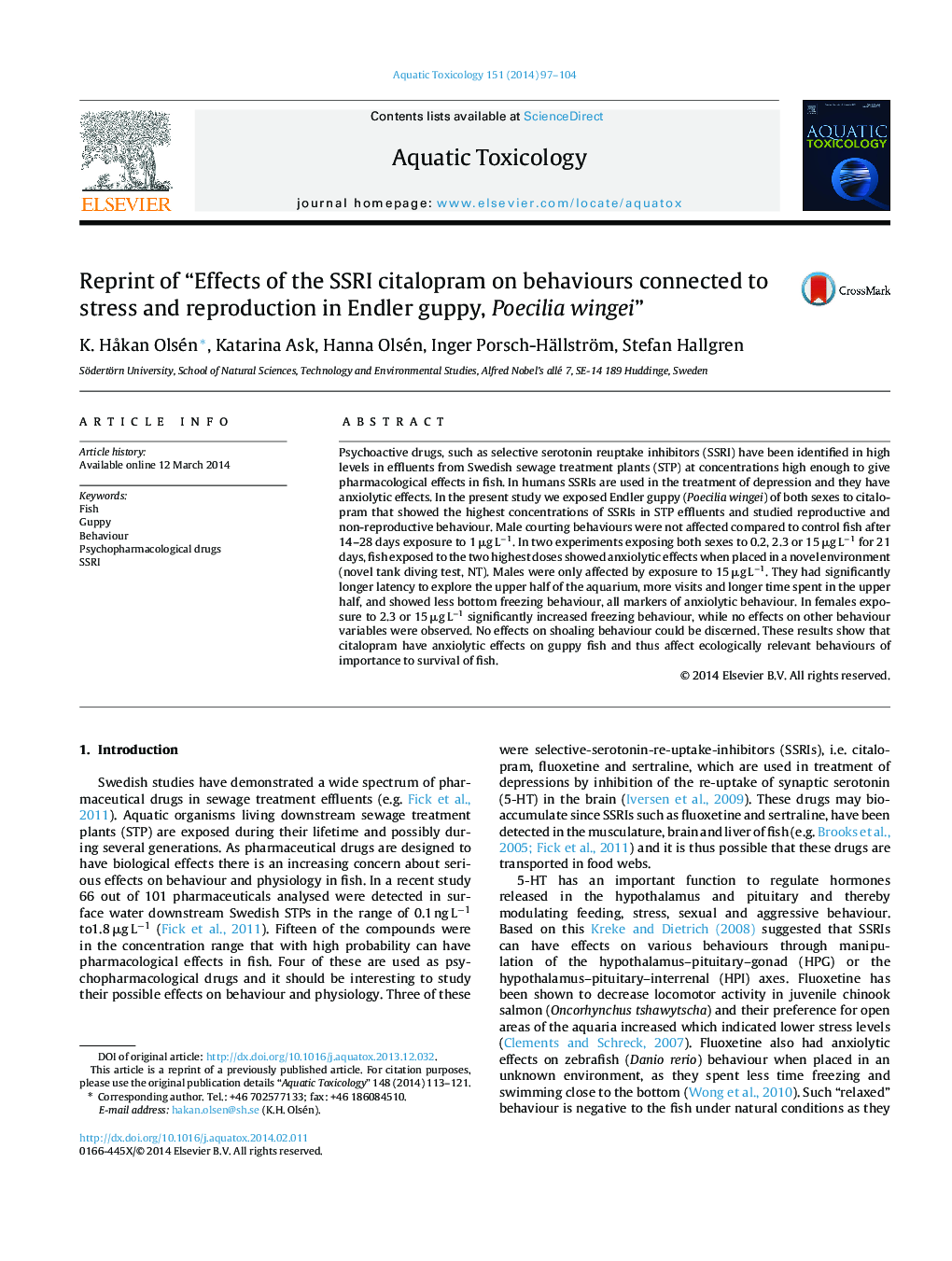| Article ID | Journal | Published Year | Pages | File Type |
|---|---|---|---|---|
| 6382346 | Aquatic Toxicology | 2014 | 8 Pages |
Abstract
Psychoactive drugs, such as selective serotonin reuptake inhibitors (SSRI) have been identified in high levels in effluents from Swedish sewage treatment plants (STP) at concentrations high enough to give pharmacological effects in fish. In humans SSRIs are used in the treatment of depression and they have anxiolytic effects. In the present study we exposed Endler guppy (Poecilia wingei) of both sexes to citalopram that showed the highest concentrations of SSRIs in STP effluents and studied reproductive and non-reproductive behaviour. Male courting behaviours were not affected compared to control fish after 14-28 days exposure to 1 μg Lâ1. In two experiments exposing both sexes to 0.2, 2.3 or 15 μg Lâ1 for 21 days, fish exposed to the two highest doses showed anxiolytic effects when placed in a novel environment (novel tank diving test, NT). Males were only affected by exposure to 15 μg Lâ1. They had significantly longer latency to explore the upper half of the aquarium, more visits and longer time spent in the upper half, and showed less bottom freezing behaviour, all markers of anxiolytic behaviour. In females exposure to 2.3 or 15 μg Lâ1 significantly increased freezing behaviour, while no effects on other behaviour variables were observed. No effects on shoaling behaviour could be discerned. These results show that citalopram have anxiolytic effects on guppy fish and thus affect ecologically relevant behaviours of importance to survival of fish.
Related Topics
Life Sciences
Agricultural and Biological Sciences
Aquatic Science
Authors
K. HÃ¥kan Olsén, Katarina Ask, Hanna Olsén, Inger Porsch-Hällström, Stefan Hallgren,
